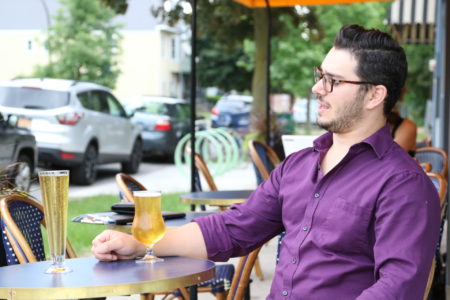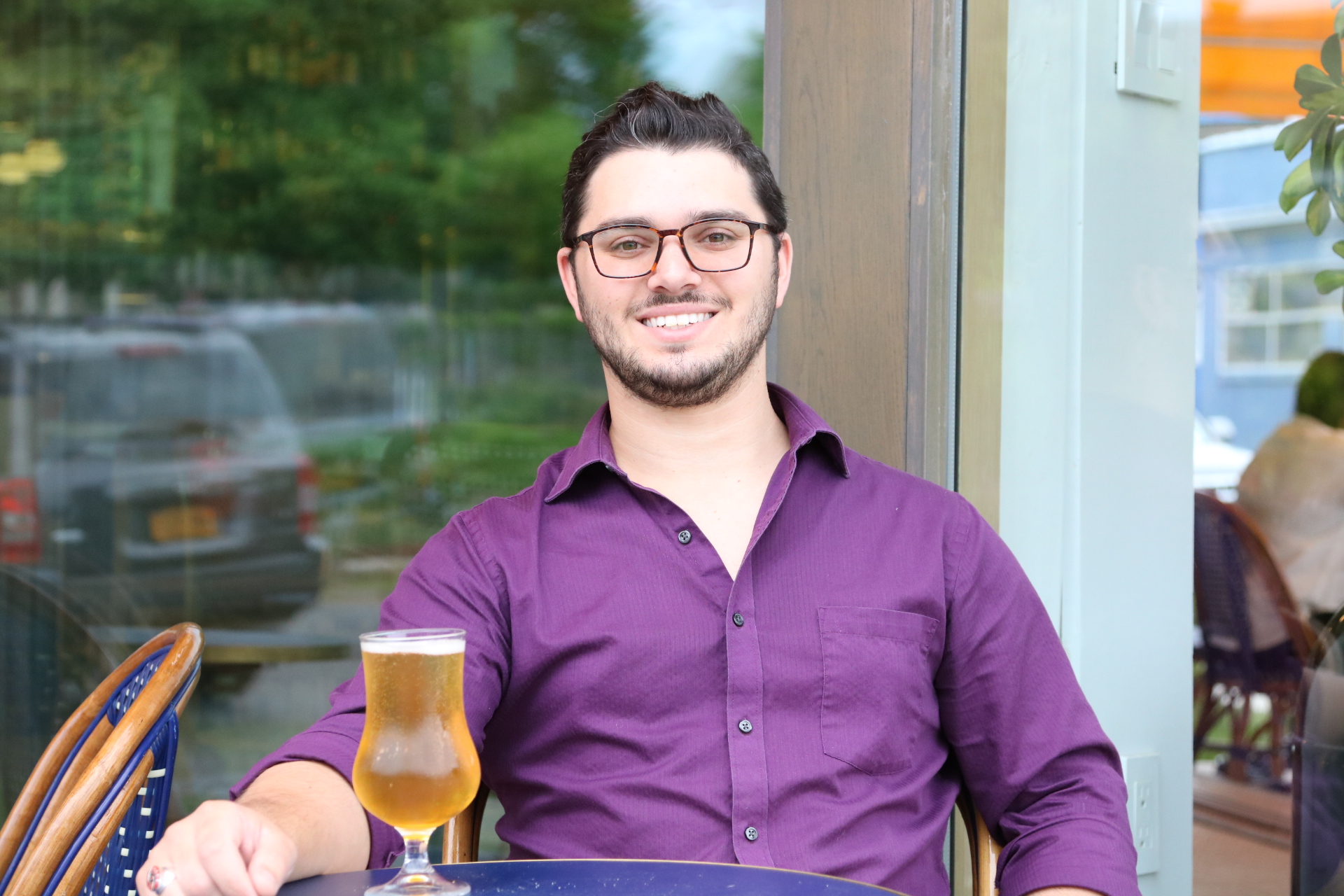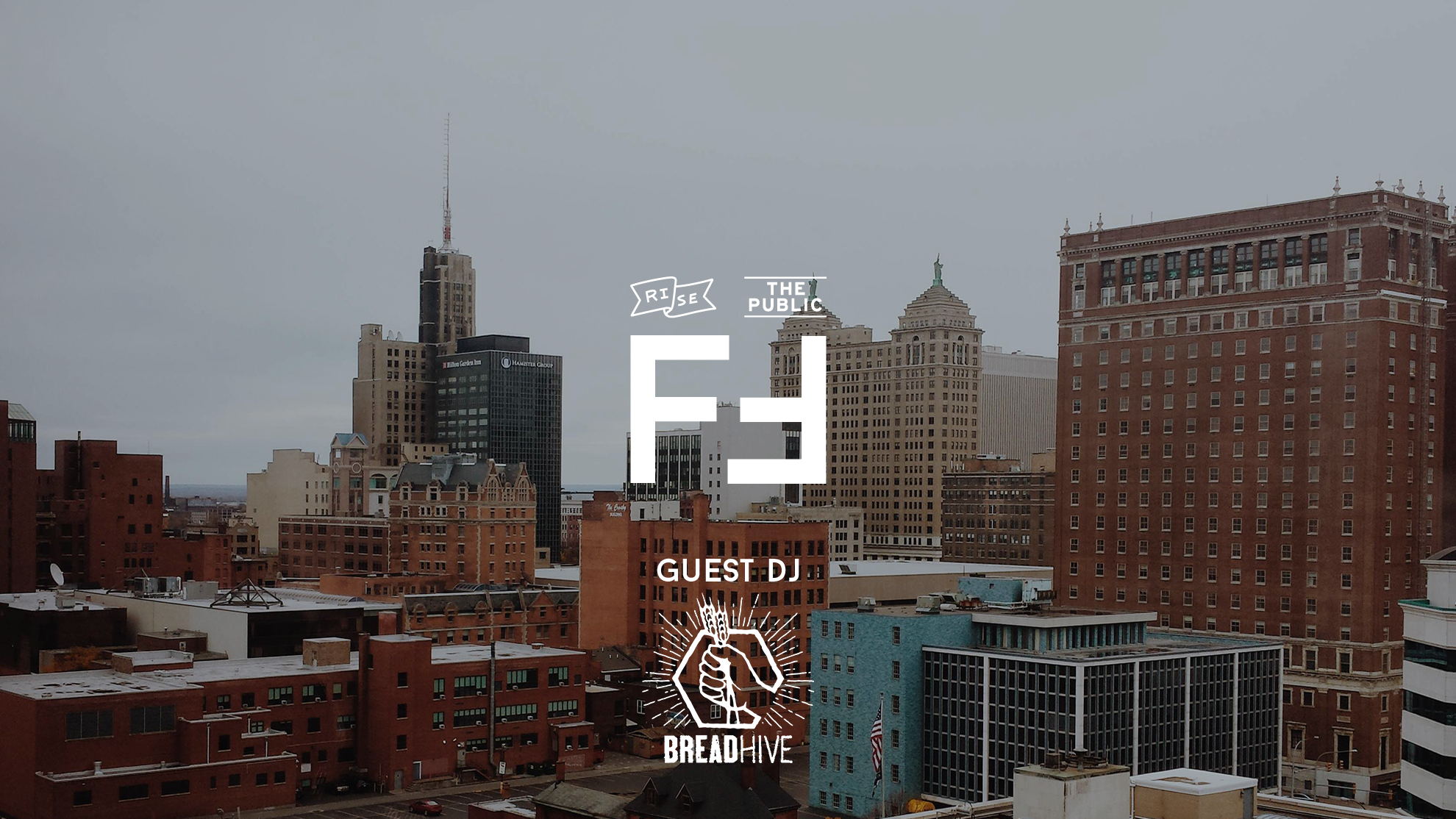We sat down with Adam Goldfarb, Chief Sustainability Officer at Buffalo-based Goldfarb Financial to talk about the beast that is Capitalism. Many of us exited college and entered the job market as the global economy collapsed around us. Finding a job, paying off loans, and then still finding the money to set aside for investment into retirement has been a challenge over the last ten years.
We’re seeing inequality run wild, elected representatives actually only representing their largest donors, and the planet being destroyed for tomorrow in the name of this afternoon’s profits.
Goldfarb Financial is a certified B Corp – A big deal as there are only a handful of those in all of New York State. B Corps are for-profit companies certified by the nonprofit B Lab to meet rigorous standards of social and environmental performance, accountability, and transparency.
If anyone was trying to work within the good aspects of capitalism, it’s a B Corp investment firm.
We asked Adam if capitalism was here to stay, and just what good can actually come out of it?
– – –
Money has power. Who you choose to invest your money in matters because it can help a corporation grow, or the lack of investment can hold it back. So how can you promote your values inside of a marketplace that puts profit above all else? First, you need to know who you are investing in. We don’t ask our clients to just trust us. We show them exactly where their money is going and expect them to ask more questions as to why we’ve placed it there.
We have certain industries that are just non-starters for us like fossil fuels, arms manufacturers, tobacco, and a few others. After that, where can we put your money that will help you in retirement, but also make sure that people and planet have equal value to profit when it comes to the three P’s?
A big buzzword of the day is sustainability, right? We hear it all over the place. But there are so many layers and aspects to sustainability. A corporation can be sustainable, but that doesn’t mean it’s treating people or the planet well. You have to look deeper into the practices of each corporation you’re considering investing in, if those things matter to you.
We use CSR Hub: Corporate Social Responsibility to review a corporation’s environmental impact, shareholder advocacy. If they rank well, that’s a company we consider investing in off the bat.
Then, we take a deeper look, using ESG – Environment, Social and Governance. There might be an industry that is considered “unclean.” At the same time, they might be rated very highly on shareholder advocacy. If they listen to the shareholders, and enough shareholders come for a meeting, they can make change. Shareholder advocacy, or how much of an influence shareholders have on a company, is a driver of change.
So is divestment. We see a ton of people calling for divestment. “New York State should divest from this industry, XYZ University should divest from that industry.”
Divestment is valid, but the thing about it is that you’re exiting a corporation completely. By getting out, with your money, you’re making a statement of “I’m not going to buy anything from you, I will not invest in you, I don’t want to see you grow because I don’t believe in what you do to people or the planet.”
Once you’re out, you don’t have a say at all because you’re not a shareholder. If the corporation you’re protesting only has a responsibility to its bottom line and its shareholders, and you’re no longer a shareholder, they couldn’t care less about your opinion of them. Your removal of funds may hurt them in the short term, but most corporations bounce back.
For instance, fossil fuels aren’t going anywhere. Not for a while. Divestment has happened, but the companies remain massively profitable. BP came out with a study in 2016/2017 that say there’s up to 55 years of oil left on the planet. It’s a finite resource, we know it, but until it happens, they’re not going anywhere.
However, they’re not saying to themselves that they’ll close down operations in 55 years. They’re looking to shift as well. Shareholders can speak up and guide the direction of that change. This is shareholder advocacy, those shareholders who call in to meetings, send proxies to speak in person, and speak their mind over the direction of a company. If you own a share, you own a piece of the company and your voice will be heard. There are multiple instances where shareholders have banded together to shift a company’s direction, either for reasons of profit, or reasons of sustainability etc.
We like to look into other B Corps when we’re researching companies.
Ben and Jerry’s is wholly owned subsidiary by Unilever, but Unilever let them keep their benefit corporation, their certified B corp status, and their own board of directors internally. Why? Because they saw it was profitable. Ben and Jerry’s makes a great product. In 2017, they were #3 in ice cream sales in the US. They’re not big, but they’ve climbed to #3, because people like the product but also believe in the mission. Naming flavors after social causes that receive donations, that is so key to their success.
Patagonia, also a certified B Corp, was going to close its doors on Black Friday, but the employees said they wanted to work and donate all the day’s profits to 1% for the Planet. They were expecting about $2M in profits. They ended up selling $10M in profits in a single day.
They make a great product, but people believe in their message, and the message of that day. They made a point to go shop at Patagonia on the busiest day of the year, because they knew their money was going further.
We’re a capitalist society. That’s not going to change. It doesn’t have to change. It’s how we operate inside of this society that should indeed be altered.
Remember the movie Wall Street, “Greed is Good”? That’s what has to change. When we look at things like predatory capitalism, that’s a very short-term method of making money. A few people will make it, do extremely well, and they hurt a lot of people in the process. Those practices are what have people calling for an end to Capitalism, or at least for more regulation within it.

What we’re talking about is “Capitalism Doing Good.”
We really believe that’s a message that needs to get out. Governments can take action through regulations and funding to give resources to organizations that make an impact for the planet and people, but this entire system of exploiting people and destroying the planet will not end until there is a fundamental change in business operations and that change will be driven by shareholder advocacy and divestment.
While we want to be really transparent and informative to our clients, we wanted to do more than ask people to invest their money with us to contribute to that change. Our core drivers are sustainability, global citizenship, and education. Education is where we think we can make an even larger impact.
We do a “Money Talks” program where we examine People, Profit, and Planet. We brought in the WNY Land Conservancy to talk about the DL&W Railroad. They’re trying to do something like NYC’s Highline. Green, public space will benefit a lot of people in the area. We looked at what the sustainable financial impact of the project could be, in a room full of interested parties.
We brought in Leonard Oaks Winery and Arrowhead Spring Vineyards to talk about sustainable wine development. We had an attorney come in and talk about identity theft, and we spoke to our audience about cryptocurrency. We’ve partnered with Erie County Department of Senior Services where people age 50+ can come in and learn more about booms, bubbles, and busts and their impact on retirement savings, and we’ve also lectured on the Federal Reserve, Brexit, a disappearing middle class, and the new tax law. If the people we reach are more informed about economic trends and how they play out in daily life, they’re going to be more informed about their investment strategies as well.
We’ve been doing Socially Responsible Investing and In Values-based Investing for 30 years. We started the company right after the crash of 1988. We survived the dot com bubble of 1999-2000, and our CFA joined the firm just as the global economy tanked in 2008. We’ve survived it all by looking at the companies that have their eyes on more than just today’s profits. We believe that Capitalism can do good, if more people are educated and get involved.
Views expressed are the opinions of Adam Goldfarb and the Financial Advisors at Goldfarb Financial and not necessarily those of Raymond James.




